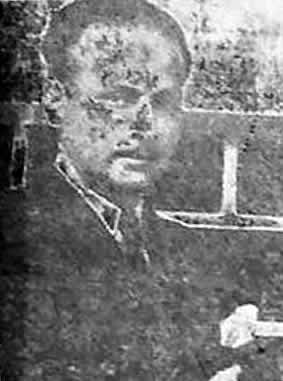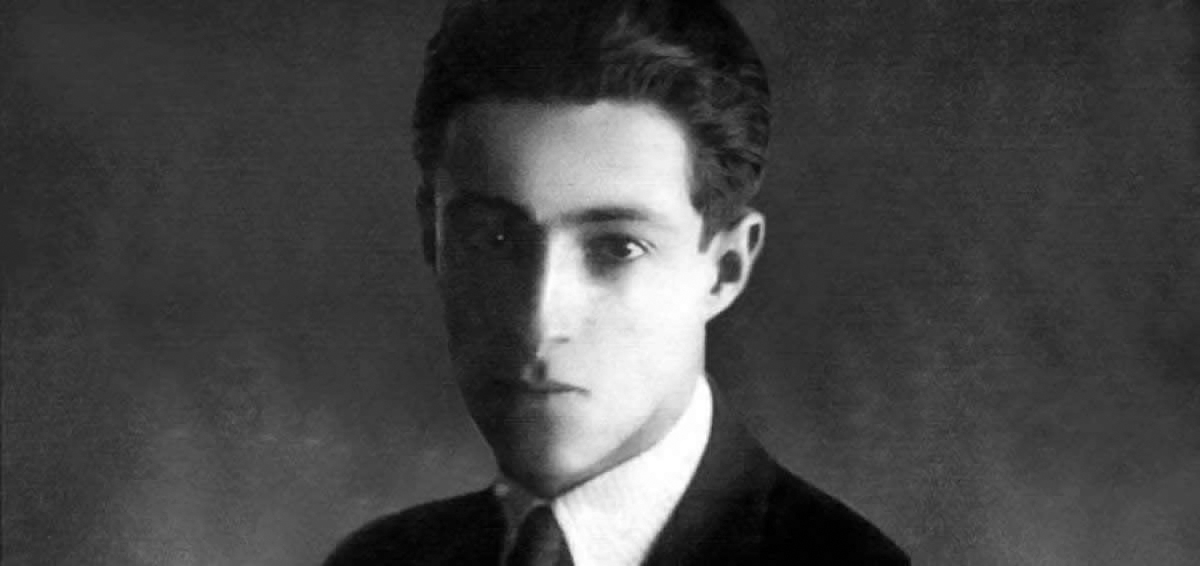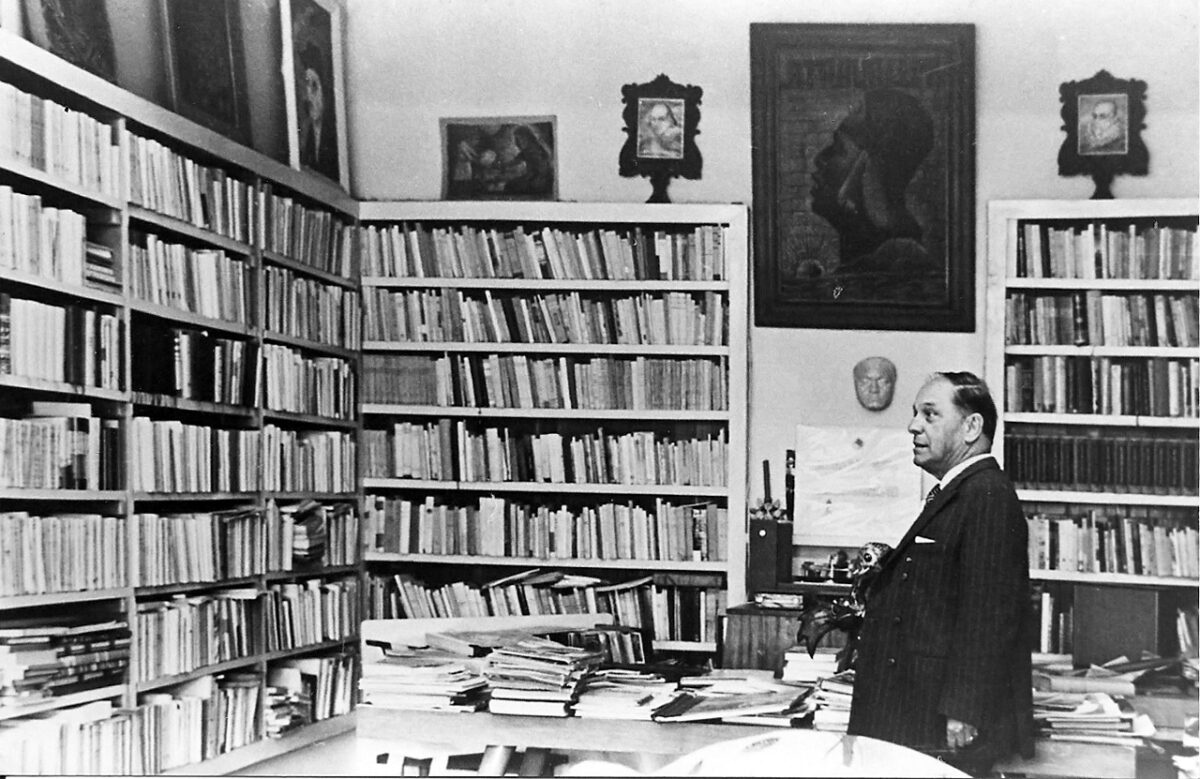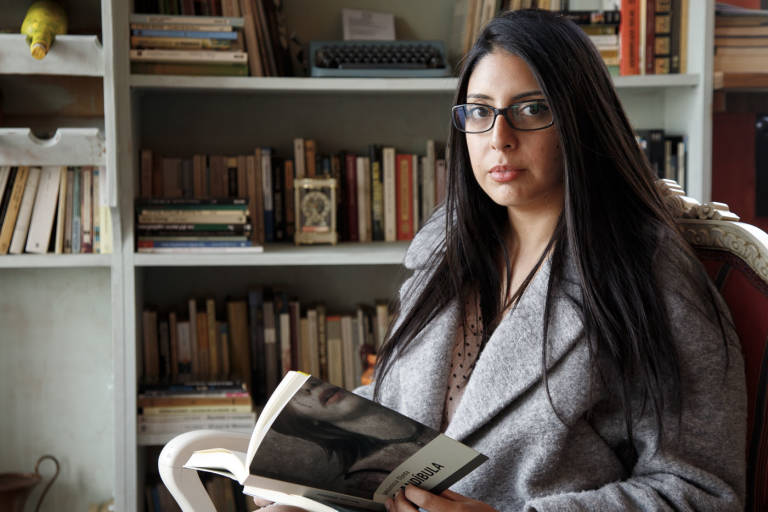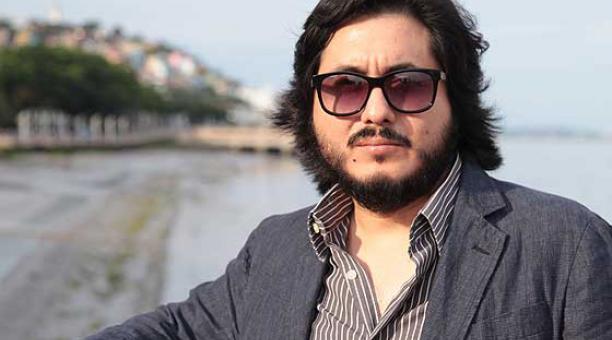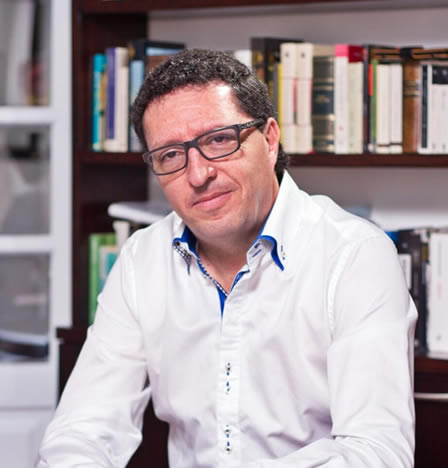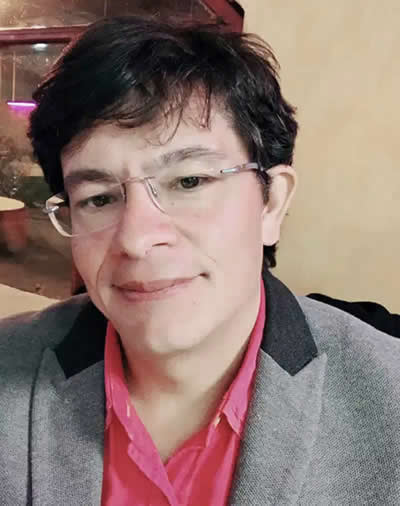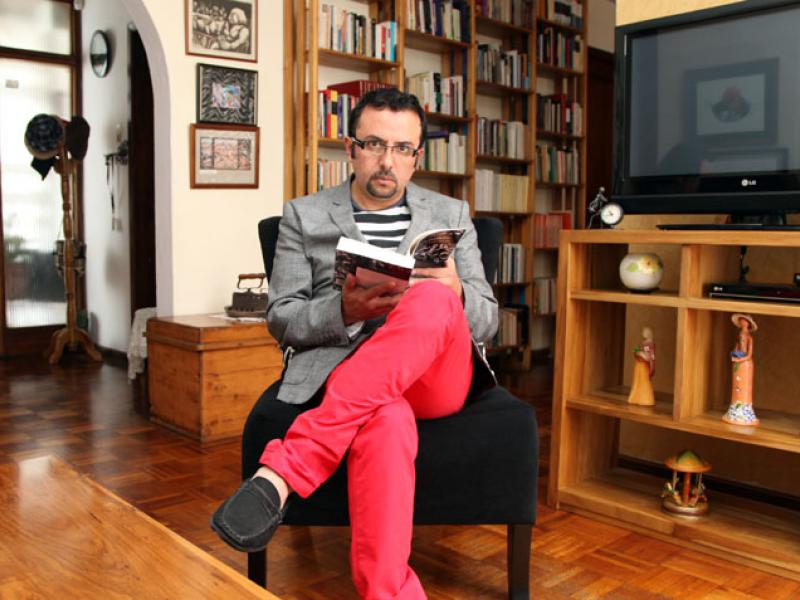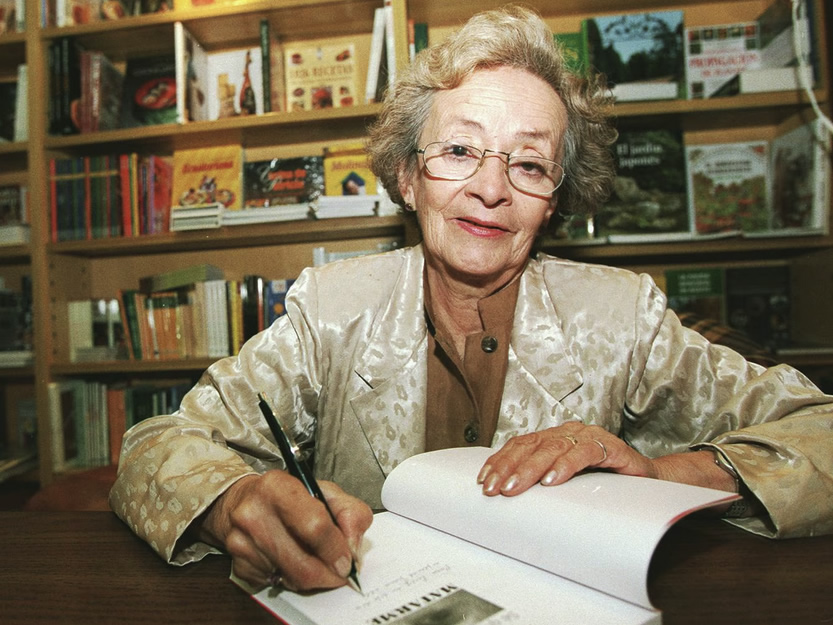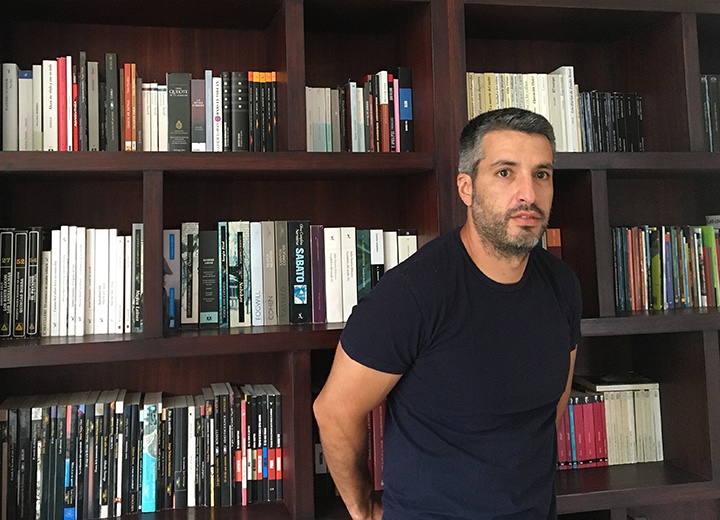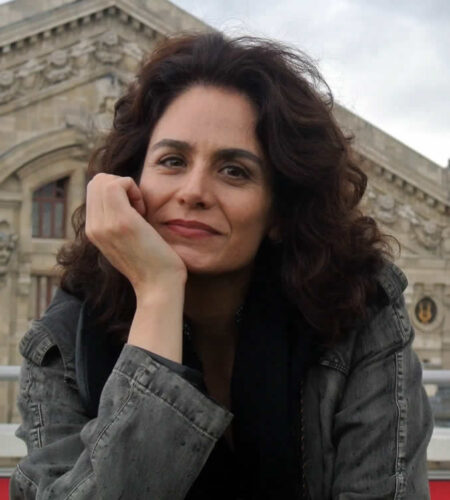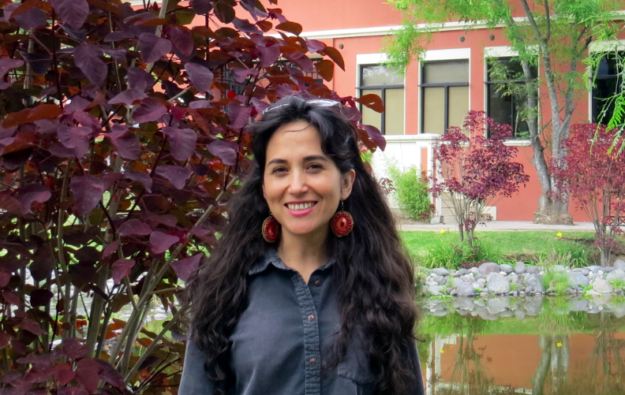Marco Antonio La Mota was an Ecuadorian journalist, poet and short story writer. He was a staff writer for the newspaper El Telegrafo. He was born in Guayaquil, Ecuador. The date of his birth is unknown; it is known he died in 1946. In 1941 La Mota published a book of short stories titled Las huellas de una raza with a foreword by Joaquín Gallegos Lara (1909-1947).
Continue reading “Marco Antonio La Mota”Month: October 2020
Pablo Palacio
Pablo Palacio was an Ecuadorian avant-garde writer. He was born in Loja on January 25, 1906 and died in Quito on January 7, 1947. In 1925 he earned a degree in jurisprudence from the Central University of Ecuador. He served as professor of philosophy and literature at the same University, as an Undersecretary of the Ministry of education (when it was led by Benjamín Carrión), and as Undersecretary of the National Constituent Assembly in 1938. He is best known for his novels Débora (1927), Vida del ahorcado (1932) and his short story collection Un hombre muerto a puntapiés (1927). His work has been praised for its originality and its contribution to the development of Ecuadorian literature. In 1939, he began to suffer from mental disorders and soon after was declared mad. He spent the last seven years of his life in a psychiatric clinic accompanied and cared for by his faithful wife, who volunteered as a nurse in the same clinic to be able to cover the costs of treatment.
Continue reading “Pablo Palacio”Benjamín Carrión
Benjamín Carrión Mora (Loja, April 20, 1897 – Quito, March 8, 1979) was one of the great Latin American intellectuals of the 20th century. He was a lawyer, writer, novelist, poet, essayist, biographer, literary critic, legislator, diplomat, educator and cultural promoter. His most notable literary work is Atahualpa (1934), a biography written in story form about the last Inca emperor, which has been translated into English and French. In 1944 Carrión founded the House of Ecuadorian Culture, which preserves and promotes many aspects of Ecuador’s culture, including music, dance, art, literature, theater and film. Considered Carrión’s greatest achievement and legacy, this organization maintains several museums, libraries and performance venues throughout Ecuador, as well as a printing press which has been instrumental in publishing many noteworthy Ecuadorian authors.
Continue reading “Benjamín Carrión”Mónica Ojeda
Mónica Ojeda (Guayaquil, 1988) is an Ecuadorian novelist, short story writer, and poet. In 2017, she was named as one of the Bogota39, a selection of the most talented and promising young writers in Latin America (awarded every 10 years, Bogota39 is a UNESCO World Book Capital project, in conjunction with the Hay Festival). In 2018, Ojeda published the novel Mandíbula, which tells the story of a teenage girl obsessed with horror stories and creepypastas who is kidnapped by her literature teacher. The book was widely acclaimed by critics upon its publication, with the Spanish newspaper El Pais calling it “one of the novels of the season.” In 2022, Mandíbula was translated into English by Sarah Booker and published by Coffee House Press as Jawbone — a translation that has been highly praised by critics and is currently a longlist nominee for the National Book Award in the U.S. in the translation category.
Continue reading “Mónica Ojeda”Ernesto Carrión
Ernesto Javier Carrión Castro (Guayaquil, 1977) is a distinguished poet and novelist whose work has won numerous awards and has been widely recognized both in his home country and internationally. His literary career began to gain momentum in 2002 when he was awarded the César Dávila Andrade National Poetry Prize for “Carni vale”. Over the years, Carrión Castro’s unique voice and innovative storytelling have earned him several prestigious awards such as the Jorge Carrera Andrade National Poetry Prize for “Viaje de Gorilas” in 2013, and the Casa de las Américas Novel Prize for “Incendiamos las yeguas en la madrugada” in 2017. His book “El día en que me faltes” won the Lipp Novel Prize in 2017. Most recently, in 2019, his novel “El vuelo de la tortuga” won the Miguel Donoso Pareja Prize. In 2023, Carrión Castro’s continuous contribution to literature was recognized with the Gonzalo Rojas Residency Scholarship. His ability to weave compelling narratives with poetic language has solidified his status as one of the most significant contemporary writers in Latin America.
Continue reading “Ernesto Carrión”María Fernanda Heredia
María Fernanda Heredia Pacheco (Quito, March 1, 1970) is a prolific Ecuadorian writer, illustrator, and graphic designer. With a rich portfolio of short stories and novels tailored for children and young adults, she’s made notable contributions to Latin American literature. One of her standout achievements is her debut novel, “Amigo se escribe con H” (2002), which garnered the prestigious Norma-Fundalectura Latin American Children’s and Youth Literature Award that same year. Since 2008, she has contributed to Hogar magazine as a regular columnist, focusing on adult audiences. Among her numerous accolades, she’s been honored with the Darío Guevara Mayorga National Children’s and Young Adult Literature Award on multiple occasions, the “A la orilla del viento” Prize, the Benny Award from the Printing Industries of America (PIA) for outstanding children’s book illustration, and most recently, the esteemed Premio Cervantes Chico (Little Cervantes Prize) in 2023. She currently lives in Lima, Peru.
Continue reading “María Fernanda Heredia”Óscar Vela
Óscar Vela Descalzo is an Ecuadorian lawyer and writer who is considered one of the most representative contemporary literary voices of Ecuador. He was born in Quito, Ecuador in 1968. His novels Desnuda oscuridad (2011) and Todo ese ayer (2015) both won the Joaquín Gallegos Lara Prize for best novel of the year. His novel Yo soy el fuego (2013) won the Jorge Icaza Prize. His novel Ahora que cae la niebla (2019) tells the story of Manuel Antonio Muñoz Borrero, an Ecuadorian diplomat stationed in Stockholm during World War II who issued passports to hundreds of Jews in order to save their lives. His latest novel, Los crímenes de Bartow, was published in 2021. Since 2019 he has been a member of the Ecuadorian Academy of Language.
Continue reading “Óscar Vela”Marcela Ribadeneira
Marcela Ribadeneira (Quito, 1982) is a writer, journalist, film critic, and visual artist, renowned for her profound exploration of themes like mortality, bio-experimentation, and the normalization of terror. Educated in film directing at the Scuola Internazionale di Cinema e Televisione in Rome, her artistic endeavors span across various mediums. Ribadeneira’s notable literary work, “Golems,” reflects her unique blend of literary and cinematic insights. She is the co-founder of the publisher La Linea Negra with her husband, Eduardo Varas. Her stories and journalistic articles have been published in magazine such as: Gatopardo Ecuador, Ronda (Iberia), SoHo, Mundo Diners, Siente (Tame), In and Vamos (Latam).
Continue reading “Marcela Ribadeneira”Cristián Londoño Proaño
Cristián Londoño Proaño is an Ecuadorian science fiction and fantasy writer, poet, screenwriter, film producer and director. He was born in 1973 in Quito, Ecuador. He has invented and developed the concept of the Andean fantasy novel. Most notable among his novels is the “El Instinto de la Luz” trilogy, which consists of the books El Instinto de la Luz (2011), El Tiempo Muerto (2015), and El retorno de la luz (2018).
Continue reading “Cristián Londoño Proaño”Juan Pablo Castro
Juan Pablo Castro Rodas (Cuenca, 1971) is a renowned Ecuadorian novelist, short story writer, and poet. He has received several prestigious literary awards, including the Miguel Donoso Pareja Prize, the Joaquín Gallegos Lara Prize (twice), and the Aurelio Espinosa Pólit Prize. His notable works encompass 7 novels, 2 short story collections, and a book of poems. In 2022, Juan Pablo Castro received the Aurelio Espinosa Pólit National Literature Prize for his novel “Mizuko: los Niños del Agua,” one of Ecuador’s most important literary awards. Castro’s talent lies in intertwining personal experiences with imaginative storytelling, crafting evocative prose and introspective narratives that have made him a celebrated figure in contemporary Ecuadorian literature.
Continue reading “Juan Pablo Castro”Alicia Yánez Cossío
Alicia Yánez Cossío (Quito, September 10, 1928) is an Ecuadorian novelist, poet, short story writer, and journalist. She is considered one of the 2oth Century’s most important literary figures of Ecuador and Latin America. Since 1991 she has been a member of the Ecuadorian Academy of Language. In 1996, with her novel El cristo feo (1995), Yánez became the first Ecuadorian to win the Sor Juana Inés de la Cruz Prize (Guadalajara, Mexico), one of the most prestigious awards for female authors in the Spanish speaking world. In 2008 she received Ecuador’s highest literary award, the Eugenio Espejo Award, for her lifetime of work.
Continue reading “Alicia Yánez Cossío”Peky Andino
Peky Andino Moscoso (Quito, September 19, 1962) is an Ecuadorian playwright, a screenwriter, television director, actor and poet. Andino’s plays have won several awards, such as the Joaquín Gallegos Lara Prize (2006 and 2011), the National Prize of the Arts, and the Otto Castillo Prize for Experimental and Political Theater. As an actor, he has appeared in Sebastián Cordero’s film “Ratas, ratones, rateros” (1999) and Fernando Mieles’s film “Prometeo deportado” (2011). He has been a screenwriter and director of various TV shows. He is the creator and lead director of the telenovela “Sharon La Hechicera” (2018). Among his best known theatrical pieces is the play Medea llama por cobrar (2006), in which he recreates the drama of Ecuadorian families who had to emigrate during the economic crisis of 1999 through a plot with multiple parallels to Euripides’ Greek tragedy Medea. In 2014 he published his first book of poetry Moscas de plata.
Continue reading “Peky Andino”Andrés Cadena
Andrés Cadena (Quito, 1983) is an award-winning short story writer. His debut collection of short stories “Fuerzas ficticias” (2012) was given the Pichincha Award by the province of Pichincha. His second book “Altanoche” (2016) won the Joaquín Gallegos Lara Prize. His most recent book, “Camino errado” (2020) won the Miguel Donoso Pareja Prize at the Guayaquil International Book Fair.
Continue reading “Andrés Cadena”Gabriela Alemán
Gabriela Alemán is an Ecuadorian writer, translator, literary critic, academic and professor. She was born in Rio de Janeiro to Ecuadorian parents on September 30, 1968. After living in several countries in her youth, she settled in Quito, Ecuador. Alemán studied translation at University of Cambridge (UK), received a master’s in Latin American Literature at Simon Bolivar Andean University (Ecuador) and obtained a doctorate at Tulane University (New Orleans). In 2006, she received the Guggenheim scholarship in Film, Video and Radio Studies. Alemán won First Place at the CIESPAL de Crónica Awards for her article “Los limones del huerto de Elisabeth” (2014), and the Joaquín Gallegos Lara Prize for her short story collection La Muerte silba un blues (2014). Her best known novel is Poso Wells (2007; translated into English by Dick Cluster, 2018). The Paris Review, The New Yorker, and Los Angeles Review of Books have published commentaries and interviews about the novel. Alemán teaches at the University of San Francisco, Quito and at Tulane University.
Continue reading “Gabriela Alemán”Gabriela Ponce
Gabriela Ponce Padilla is an Ecuadorian writer, playwright and professor. She was born in Quito, Ecuador in 1977. In 2015, she published her first book, a collection of short stories titled Antropofaguitas. In 2018, her play Lugar was awarded the Joaquín Gallegos Lara National Literature Prize. In 2019 Ponce published her first novel, Sanguínea, in which she utilizes blood and menstruation as metaphors to explore pain, eroticism, and the protagonist’s love breakups. It was translated into English as Blood Red by Sarah Booker and published by Restless Books in 2022. That same year, she published “Flotar, pude (Severo)” a book of short stories. Ponce is currently a professor at the College of Communication and Contemporary Arts of the University of San Fracisco, Quito (USFQ).
Continue reading “Gabriela Ponce”
